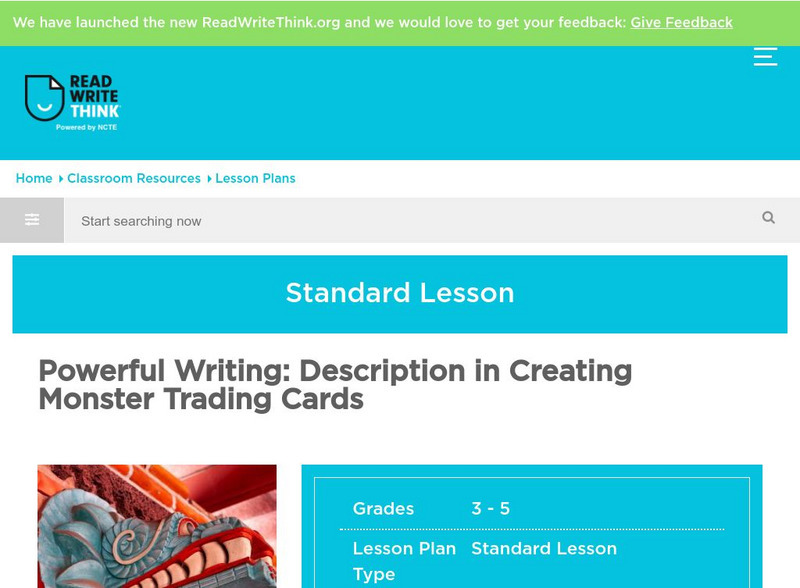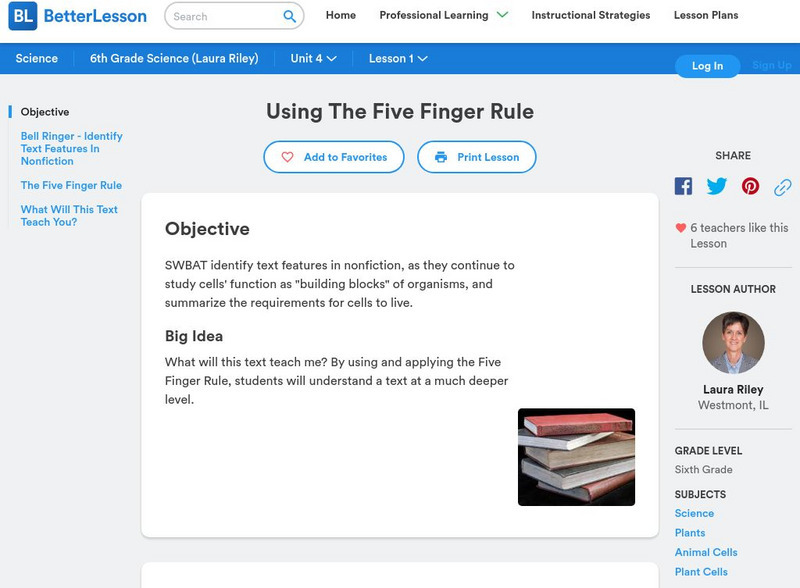McGraw Hill
Mc Graw Hill: Informational Text: Analyze Development of Text Elements: Events
Read an informational piece, and learn how to analyze the development of an event in the text.
ReadWriteThink
Read Write Think: Narrative Pyramid
A printable narrative pyramid where students can record information about a story including the character, setting, problem, main events, and solution. Directions on how to use this type of graphic organize as well as lists of teaching...
Quia
Quia: Polygon Quiz
In this game, students are to number the steps for making cookies in chronological order to reveal a hidden picture.
ReadWriteThink
Read Write Think: Technical Reading and Writing Using Board Games
Contains plans for a game that helps teach technical reading and writing while reviewing a novel that students have read. In addition to objectives and standards, this instructional plan contains links to sites used in the lessons as...
ReadWriteThink
Read Write Think: Using Science Texts to Teach the Organization of Nonfiction
Contains plans for three lessons that use science textbooks to teach about the organizational features of nonfiction such as labels, captions, headings, and fonts. In addition to objectives and standards, this instructional plan contains...
Polk Brothers Foundation Center for Urban Education at DePaul University
De Paul University: Center for Urban Education: I Can Classify and Infer When I Read [Pdf]
This site contains links to two graphic organizers to guide and assess the understanding of nonfiction text in science and social studies.
Houghton Mifflin Harcourt
Harcourt: School Publishers: Test Tutor: Sequence
Students will increase their reading comprehension skills and understanding of story sequence by reading a passage of text and then answering questions about the order of events.
Read Works
Read Works: Healing Paws
[Free Registration/Login Required] An informational text about a girl who volunteers to train dogs to help people with disabilities. A question sheet is available to help students build skills in reading comprehension.
Read Works
Read Works: The Scientific Method
[Free Registration/Login Required] An informational text explaining the five steps of the scientific method. A question sheet is available to help students build skills in reading comprehension.
Read Works
Read Works: Main Idea 3rd Grade Unit
[Free Registration/Login Required] A three-lesson unit teaching students to use the first and last sentence to identify the main idea of a paragraph and the first and last sentence in each paragraph to identify the main idea of a...
Utah Education Network
Uen: Lesson Plan: Microbes on My Mind
A four-day sixth-grade science lesson on the topic of microbes. Young scholars learn information about microbes and their functions through personal observation and several non-fiction texts, some of which are provided.
Read Works
Read Works: Character 3rd Grade Unit
[Free Registration/Login Required] In this three-lesson unit, young scholars learn how to identify language within a text that describes a character, use evidence from a text to describe a character, and to use details from a text to...
Read Works
Read Works: Sequence 3rd Grade Unit
[Free Registration/Login Required] This website provides a series of two lesson plans designed to teach students to create a graphic organizer showing the sequence of events in a fiction text. The lessons include ideas for direct...
Read Works
Read Works: Main Idea 4th Grade Unit
[Free Registration/Login Required] A two-lesson unit on main idea and details through which young scholars use the topic sentence to identify the main idea of a paragraph and categorize details as main idea or supporting. With free...
Polk Brothers Foundation Center for Urban Education at DePaul University
De Paul University: Center for Urban Education: I Can Infer About a Story or an Event [Pdf]
Students will use this graphic organizer to help them make an inference about a story or an event. Students will list the literal text evidence and then make an inference about the text evidence.
CommonLit
Common Lit: The Scientific Method
A learning module that begins with "What Is a Rocket" by NASA, accompanied by guided reading questions, assessment questions, and discussion questions. The text can be printed as a PDF or assigned online through free teacher and student...
CommonLit
Common Lit: "Don't Hate on the Trait" by Bird Brain Science
CommonLit.org is a wonderful resource to use in a Language Arts classroom. Each story or article is accompanied by guided reading questions, assessment questions, and discussion questions. In addition, students can click on words to see...
CommonLit
Common Lit: "Can't We All Just Get Along?" by Bird Brain Science
Earth is full of a variety of living things that interact with one another in many different ways. This informational text explains the various different types of relationships they can have with one another. It also offers guided...
Learning Farm
Learning Farm: Explaining Relationships
An interactive activity that practices determining relationships between events and concepts.
ReadWriteThink
Read Write Think: Powerful Writing Description in Creating Monster Trading Cards
Contains plans for two lessons that teach about descriptive writing by asking young scholars to create their own monster trading cards with vivid descriptions. In addition to objectives and standards, this instructional plan contains...
Better Lesson
Better Lesson: Using the Five Finger Rule
Students identify text features in nonfiction, as they continue to study cells' function as building blocks of organisms, and summarize the requirements for cells to live.
Other
Educeri: Compare & Contrast the Overall Structure in Two or More Texts [Pdf]
A 10-page handout that explains clearly what text structure is and four different types, with accompanying examples. Different types are then presented along with two pieces of informational text and a modeled analysis, then two other...
Other
Literacy Design Collaborative: Partner Retelling of Narrative Text
For this lesson, the teacher reads a story aloud and students work with a partner to retell the story using sentence starters. Includes downloadable poster.
South Carolina Educational Television
Know It All: Types of Conflict
Students will learn about the four major types of conflict. They will use children's books to identify the types of conflict used, as well as create their own narratives using one of the types of conflict.



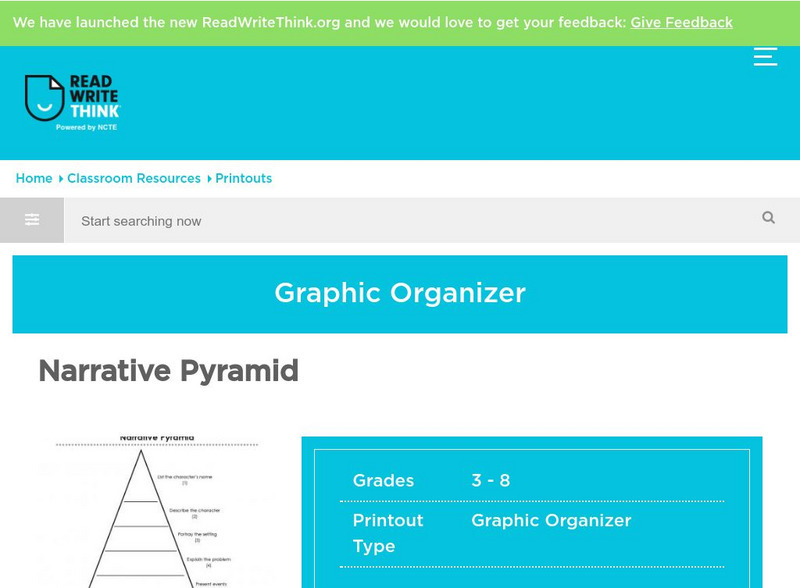



![De Paul University: Center for Urban Education: I Can Classify and Infer When I Read [Pdf] Unit Plan De Paul University: Center for Urban Education: I Can Classify and Infer When I Read [Pdf] Unit Plan](https://content.lessonplanet.com/knovation/original/119984-1e8c3bd778b0e773bd6dcdc545a348e7.jpg?1661787061)


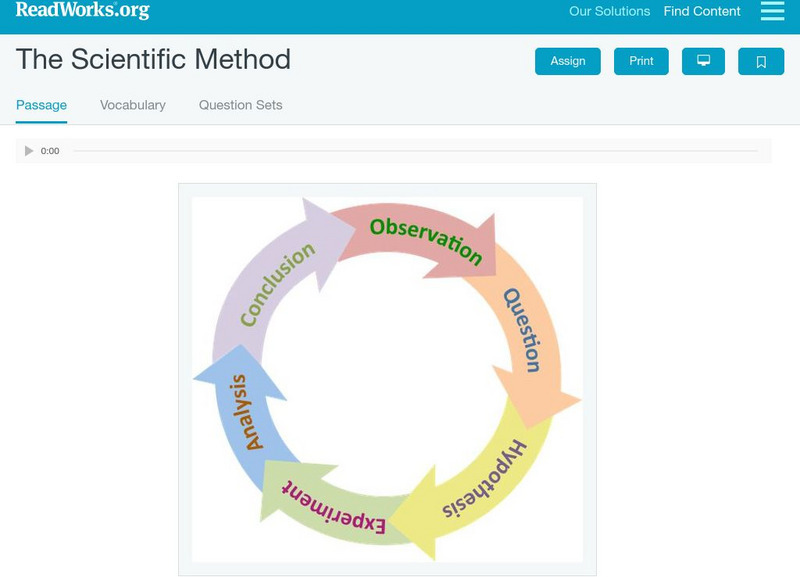

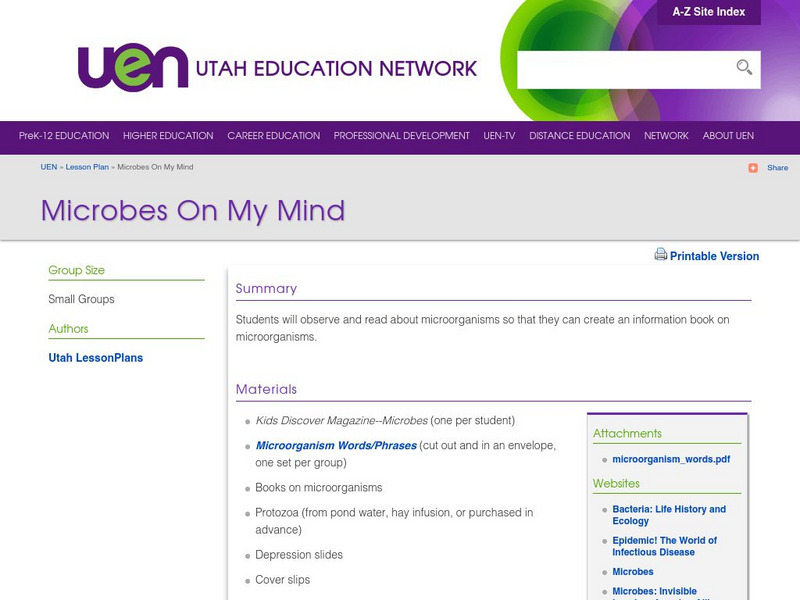
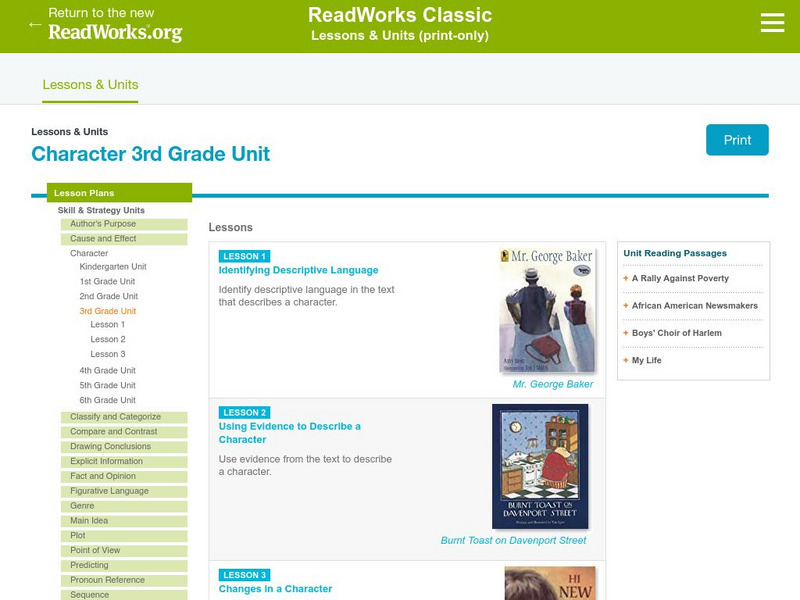
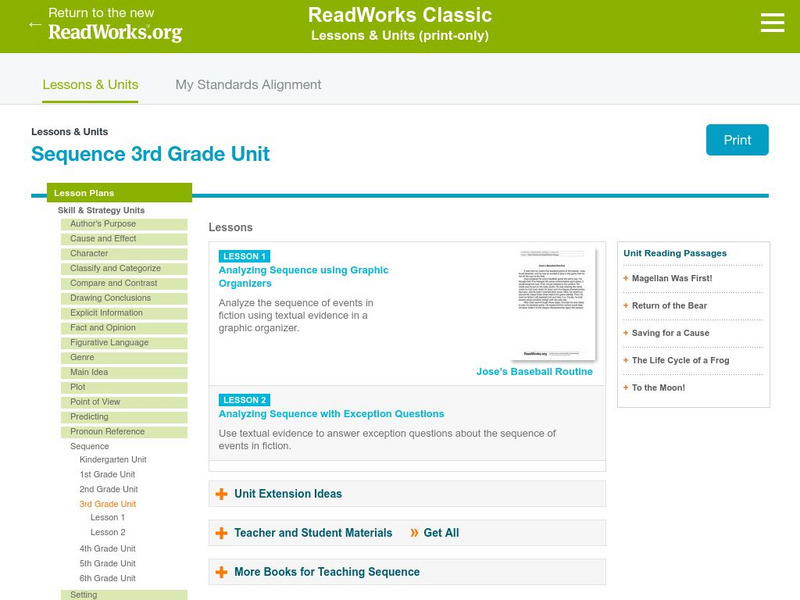

![De Paul University: Center for Urban Education: I Can Infer About a Story or an Event [Pdf] Graphic De Paul University: Center for Urban Education: I Can Infer About a Story or an Event [Pdf] Graphic](https://d15y2dacu3jp90.cloudfront.net/images/attachment_defaults/resource/large/FPO-knovation.png)

